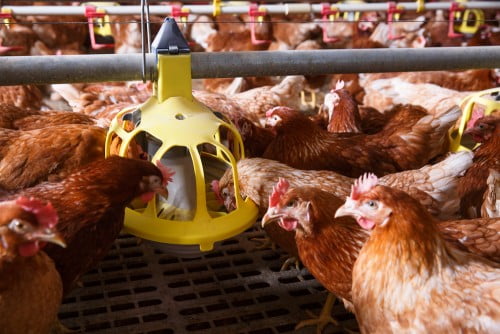South Africa is embarrassing US President Barack Obama, who has been advocating for the country’s continued inclusion in the African Growth and Opportunity Act (Agoa) preferential trade agreement, by not complying with the agreements it has committed to, says Nils Flaatten, director of Blue Viking Advisory Services.
In his previous capacity as CEO of Wegro, the Western Cape Destination Marketing, Investment and Trade Promotion Agency, Flaatten was closely involved with trade relations between South Africa and the US.
Flaatten says the US Congress has long been arguing that South Africa has matured and should graduate out of the agreement that allows duty-free access to US markets for more than 7 000 products.
 For at least the last two years the Obama administration has taken a strong stand to keep South Africa as a beneficiary of the agreement, he says. “Representatives of South Africa met with Congress and agreed to certain conditions more than two years ago, but there has not been as sense of urgency within the South African government to meet these conditions.”
For at least the last two years the Obama administration has taken a strong stand to keep South Africa as a beneficiary of the agreement, he says. “Representatives of South Africa met with Congress and agreed to certain conditions more than two years ago, but there has not been as sense of urgency within the South African government to meet these conditions.”
Flaatten reacted to Obama’s letter dated November 5 warning South Africa that if outstanding issues were not resolved by December 31, the US would suspend its duty-free treatment of South African agricultural goods into the US under Agoa.
Bloomberg reported that the value of duty-free South African farming exports to the US market was $176 million in 2014, a fraction of the $1.7 billion of trade under Agoa, according US Department of Commerce data.
According to Bloomberg the trade programme has helped South Africa more than double its exports to the US since 2000. Shipments under the agreement accounted for more than a fifth of the nation’s exports to the US last year, according to data compiled by the Tralac Trade Law Centre, based in Stellenbosch, near Cape Town.
Minister of Trade and Industry Rob Davies held a media briefing on Friday to respond to Obama’s ultimatum. In a statement issued at the briefing, he said South Africa’s negotiators have been aware of the authority of the US to suspend a country’s trade benefits in terms of the Agoa Extension and Enhancement Act where the US believes that a beneficiary of Agoa is “not making continual progress toward the elimination of barriers to United States trade and investment”.
Davies however denied that that was the case with regard to South Africa. “The main issues to be resolved are the opening of the South African market to US exports of the three meats: poultry, beef and pork,” he said, outlining progress to date and ongoing negotiations between technical teams from both countries.
It mainly relates to animal health issues, which he said are complex.
South Africa banned the import of poultry from the US in December last year, after an outbreak of bird flu. This followed after a break-through was made in trade negotiations between the two countries in June last year that resulted in South Africa scrapping punitive import duties on US chicken. This seems to be a serious bone of contention for the Americans.
Davies on Friday said South Africa believes that it is “on track” to meet the December 31 deadline to resume imports of US poultry into South Africa.
Flaatten questioned why the South African government allowed disagreement about meat regulations to put an agreement at risk that affects many other products and industries.
He says the agreement enables export of products that would not be viable unless it was duty free. A lot of money and effort has been invested in developing markets for South African exports to the US and all of that will be lost if South Africa’s participation is suspended.
It could be a slippery slope for trade relations between the two countries, and US investment in the local economy would also be affected, he says.
“Government is playing a high stakes game of chicken with the US government,” he says. To add insult to injury, the US has just concluded preferential trade agreements with some of South Africa’s biggest competitors as well.
Flaatten says any decision on South Africa’s continued participation in Agoa will also affect neighbouring countries, since the economies of the region are intertwined.
AgriSA CEO Omri van Zyl agrees that other countries of the South African Development Community (Sadec) will also be impacted by any negative decision by the US about South Africa’s Agoa benefits.
He says AgriSA considers Obama’s warning in a very serious light, but got the assurance from the Department of Trade and Industry that it is being urgently addressed. Van Zyl says the parties should now be allowed the space to do what has to be done.
AgriSA will however keep a close eye on the process and assist wherever it can to remove any remaining stumbling blocks.
“In order to grow we have to make our markets accessible to other countries. In this regard the US is a very valuable partner,” he says.
[“source-moneyweb”]





